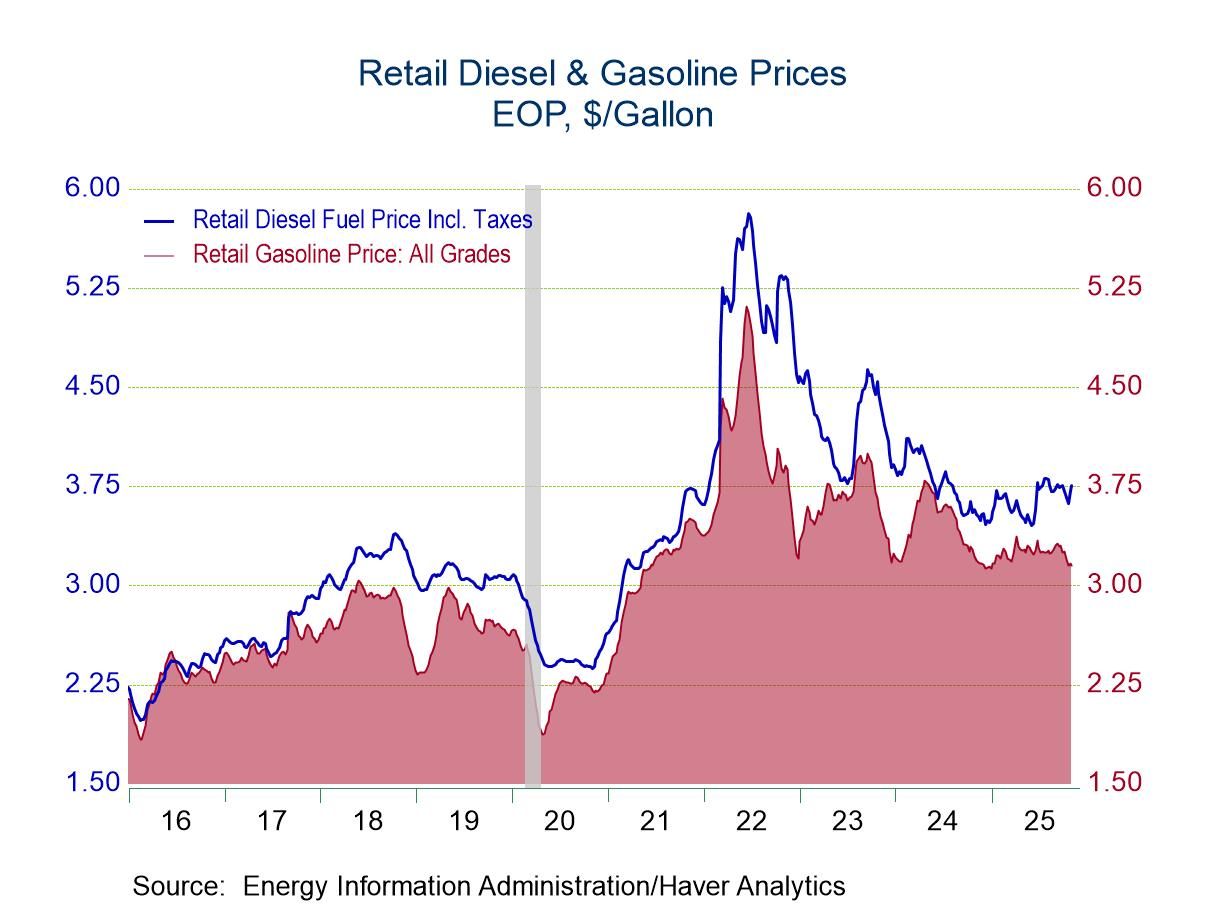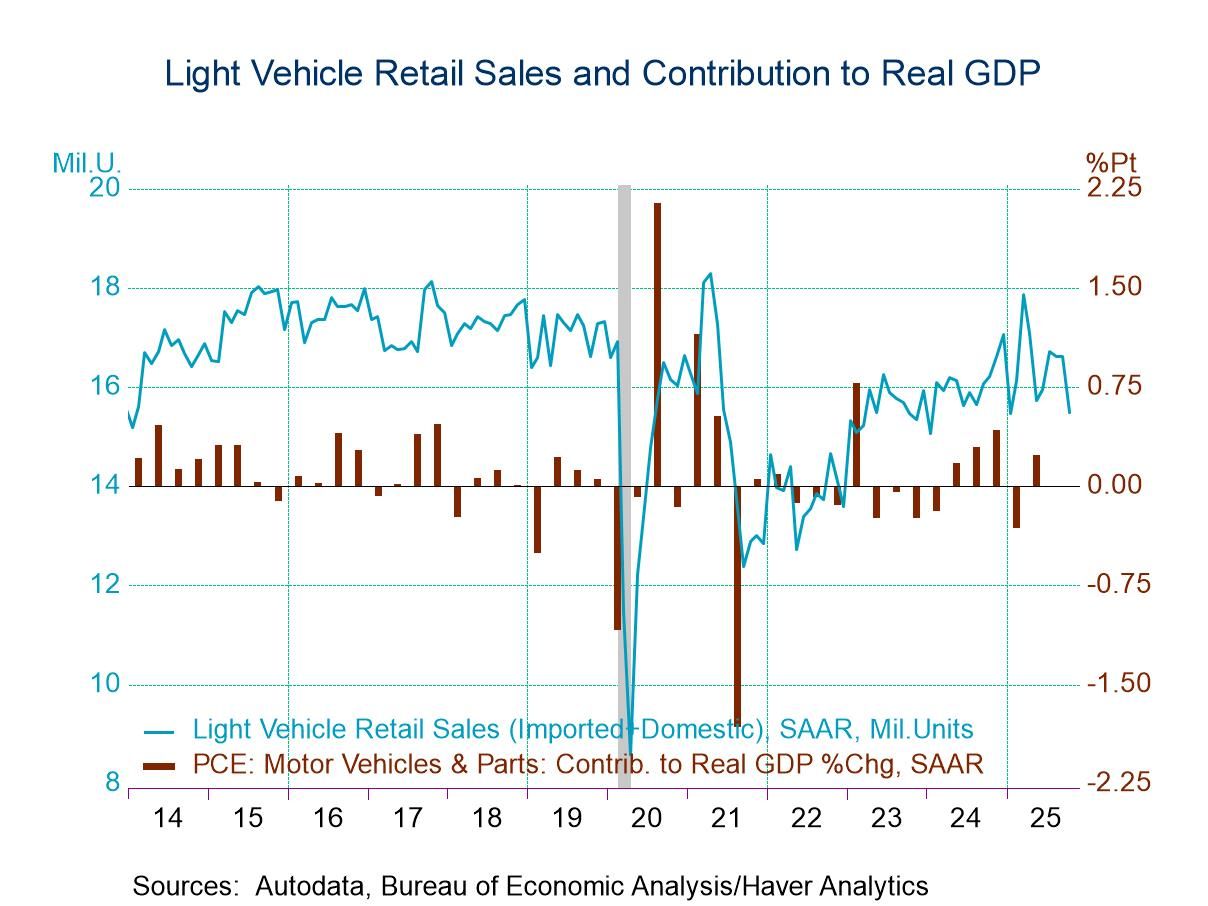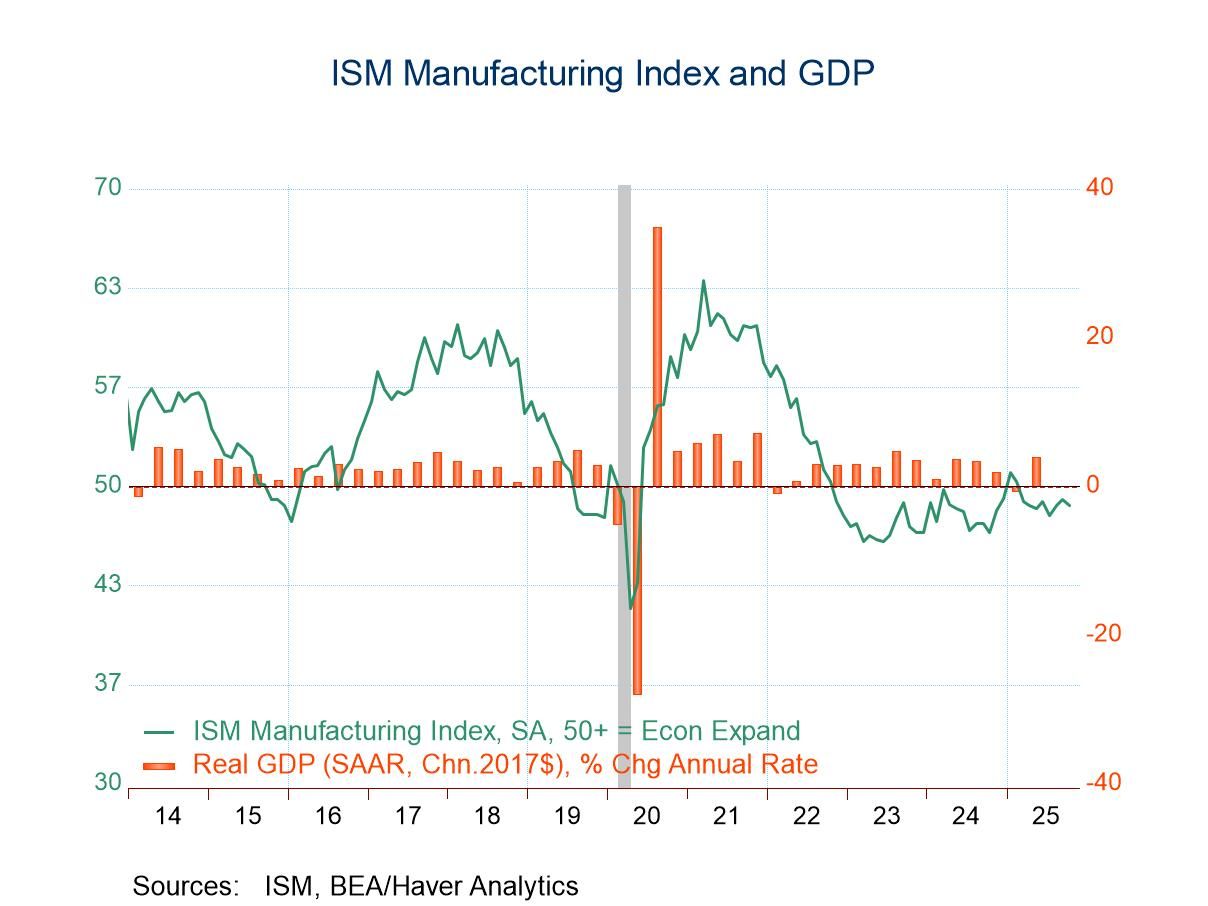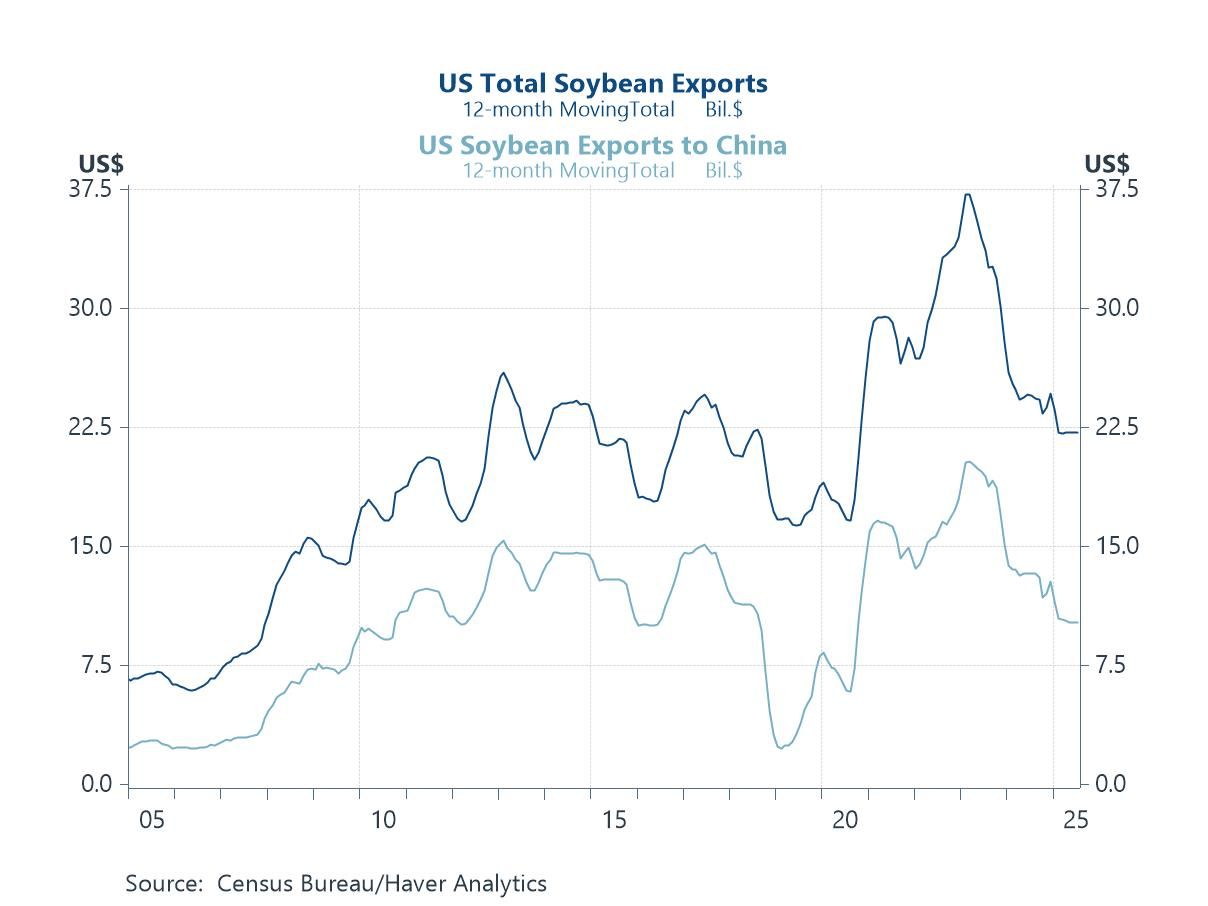 Global| Jul 03 2008
Global| Jul 03 2008Service Sectors Are Weakening Across Europe
Summary
The service sector is eroding across Europe. France had resisted deterioration for some time but in recent months the French reading has dropped sharply. Spain and the UK have the weakest readings since this index was instituted on a [...]
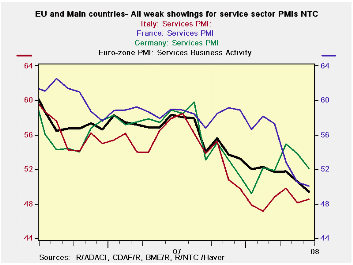
The service sector is eroding across Europe. France had
resisted deterioration for some time but in recent months the French
reading has dropped sharply. Spain and the UK have the weakest readings
since this index was instituted on a broad basis in May of 2000. France
and Italy are in the lower 10 percentile of their respective ranges.
Germany, at 53.3, is still showing expansion and is above the midpoint
of its range at a percentile standing of 56.9. For the whole of the
Euro Area the service sector standing is in the bottom 17 percentile of
its range.
All country indices were slipping from mid-2007 onward Germany
alone saw its service sector then find a bottom and rebound from early
2008 through April. But over the past two months Germany’s service
sector has been under pressure, despite is being the clear best
performer in the e-Zone.
The companion readings for consumer confidence show that the
performance of confidence across countries correlates well with the
performance of the service sector. Consumers in Spain and the UK are
the glummest and these countries have the weakest service sectors. The
French and Italian consumers are also glum but not as shell-shocked as
in the UK and Spain. Meanwhile, in Germany, consumer confidence, like
the service sector reading itself, stands above its range midpoint in
June.
The service sector is where the jobs are and therefore where
much of consumer income is generated. The performance of this sector is
important to the economy. The slippage in European services sector
performance is a bad sign for the future, especially on a day that the
ECB has chosen to hike its key lending rate by 25bp.
| NTC Services Indices for EU/EMU | |||||||
|---|---|---|---|---|---|---|---|
| Jun-08 | May-08 | Apr-08 | 3Mo | 6Mo | 12Mo | Percentile | |
| Euro-13 | 49.13 | 50.60 | 51.98 | 50.57 | 51.03 | 53.32 | 17.5% |
| Germany | 53.35 | 53.79 | 54.92 | 54.02 | 52.54 | 53.83 | 56.9% |
| France | 50.10 | 50.46 | 52.82 | 51.13 | 54.23 | 56.34 | 8.2% |
| Italy | 48.52 | 48.12 | 49.81 | 48.82 | 48.37 | 51.21 | 9.3% |
| Spain | 36.72 | 43.26 | 42.50 | 40.83 | 42.29 | 47.51 | 0.0% |
| Ireland | 41.94 | 43.89 | 45.19 | 43.67 | 46.55 | 50.84 | 0.0% |
| EU only | |||||||
| UK (CIPs) | 47.14 | 49.77 | 50.35 | 49.09 | 50.98 | 52.88 | 6.0% |
| EU Commission Indices for EU and EMU | |||||||
| EU Index | Jun-08 | May-08 | Apr-08 | 3Mo | 6Mo | 12Mo | Percentile |
| EU Services | 7 | 6 | 6 | -14.67 | -13.33 | -9.58 | 17.4% |
| EMU | Jun-08 | May-08 | Apr-08 | 3Mo | 6Mo | 12Mo | Percentile |
| Services | 9 | 8 | 7 | 8.00 | 9.33 | 13.25 | 39.4% |
| Cons Confidence | -17 | -15 | -12 | -14.67 | -13.33 | 5.64 | 17.4% |
| Consumer confidence by country | |||||||
| Germany-Consumer Confidence | -4 | -4 | 0 | -2.67 | -2.33 | 1.08 | 59.4% |
| France-Consumer Confidence | -22 | -18 | -15 | -18.33 | -16.50 | -11.33 | 21.2% |
| Italy-Consumer Confidence | -21 | -20 | -23 | -21.33 | -22.33 | -21.42 | 14.8% |
| Spain-Consumer Confidence | -38 | -31 | -25 | -31.33 | -25.67 | -20.25 | 0.0% |
| UK-Consumer Confidence | -20 | -15 | -13 | -16.00 | -12.33 | -7.75 | 0.0% |
| percentile is over range since May 2000 | |||||||
Robert Brusca
AuthorMore in Author Profile »Robert A. Brusca is Chief Economist of Fact and Opinion Economics, a consulting firm he founded in Manhattan. He has been an economist on Wall Street for over 25 years. He has visited central banking and large institutional clients in over 30 countries in his career as an economist. Mr. Brusca was a Divisional Research Chief at the Federal Reserve Bank of NY (Chief of the International Financial markets Division), a Fed Watcher at Irving Trust and Chief Economist at Nikko Securities International. He is widely quoted and appears in various media. Mr. Brusca holds an MA and Ph.D. in economics from Michigan State University and a BA in Economics from the University of Michigan. His research pursues his strong interests in non aligned policy economics as well as international economics. FAO Economics’ research targets investors to assist them in making better investment decisions in stocks, bonds and in a variety of international assets. The company does not manage money and has no conflicts in giving economic advice.



